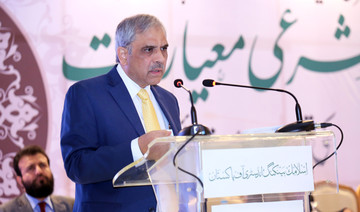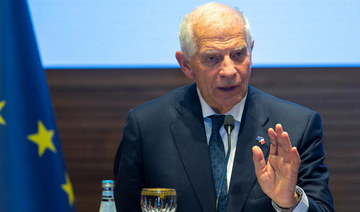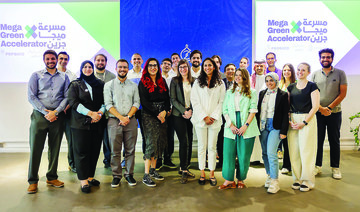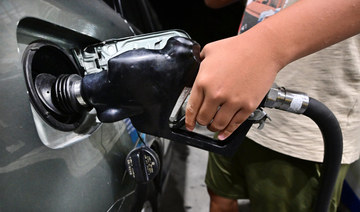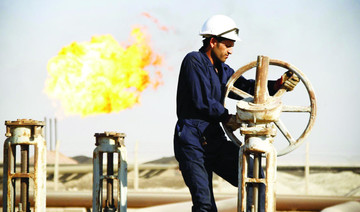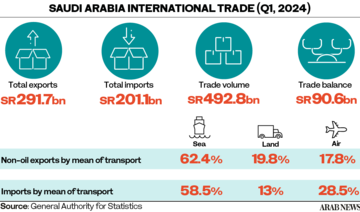KARACHI: The State Bank of Pakistan on Friday increased its key policy rate by 50 basis points to 10.75 percent, keeping in line with the market's expectations, citing inflationary pressure, elevated fiscal and current account deficits as the major reasons for its decision.
The central bank further downgraded the GDP forecast to 3.5 percent.
“Taking into account the developments and the evolving macroeconomic situation, the Monetary Policy Committee (MPC) noted that sustainable growth and overall macroeconomic stability requires further policy measures as underlying inflationary pressures continue, the fiscal deficit is elevated, and despite an improvement, the current account deficit is still high," a statement issued by the SBP read.
The average headline CPI inflation reached 6.5 percent in Jul-Feb FY19 compared to 3.8 percent recorded in the same period last year. Meanwhile, YoY CPI inflation has risen considerably to 7.2 percent in January 2019 and increased to 8.2 percent in February 2019 - the highest YoY increase in inflation since June 2014.
“These pressures on headline inflation are explained by adjustments in the administered prices of electricity and gas, significant increase in perishable food prices, and the continued unfolding impact of exchange rate depreciation. Core inflation maintained its 13-month upward trajectory accelerating to 8.8 percent in February 2019 from 5.2 percent a year earlier," the central bank said.
Furthermore, the SBP said that rising input costs on the back of higher energy prices and the lagged impact of exchange rate depreciation are likely to maintain an upward pressure on inflation, despite a moderation in aggregate demand due to a proactive monetary management. “As a result, headline CPI inflation is projected to fall in the range of 6.5 to 7.5 percent for FY19," it added.
Large-scale Manufacturing (LSM) declined by 2.3 percent during Jul-Jan FY19 against 7.2 percent growth recorded in the same period last year. The latest available estimates of major crops also depict a lackluster performance by the agriculture sector. The slowdown in commodity producing sectors has downside implications for growth in the services sector as well. “Similarly, a deceleration in consumer demand and capital investments, reflected through a cut in development spending and deceleration in credit for fixed investments, indicates a moderation in domestic demand. In this backdrop, the real GDP growth is projected to be around 3.5 percent in FY19,” the SBP projected.
Owing to stabilization measures, the current account deficit narrowed to $8.8 billion in Jul-Feb FY19 compared to a deficit of $11.4billion during the same period last year – a fall of 22.6 percent. This includes a notable pace of retrenchment of the current account deficit by 59.9 percent during the first two months of 2019 over the same period last year. This reduction in the external balance was mainly driven by a 29.7 percent decline in the trade deficit in goods and services as well as a strong growth in remittances. The reduction in the trade deficit is in large part driven by import compression- this decline would have been even more pronounced if not for a rise in oil prices.
Exports in dollar value, during this period remained flat. However, in terms of quantum there has been a notable improvement. Though still posing a significant challenge in terms of its financing, the narrowing of the current account deficit has translated into some stability in the foreign exchange market.
With an improvement in the external balance as well as an increase in bilateral official inflows, the SBP’s foreign exchange reserves gradually recovered to $10.7 billion on March 25 this year. While the reserves are still below the standard adequacy levels (equal to three months of imports cover), the recent improvement on the external front has nevertheless improved business confidence.
The fiscal deficit for HI-FY19 was higher at 2.7 percent of GDP when compared with 2.3 percent for the same period last year. In view of the shortfalls in revenue collections and escalating security-related expenditures it is most likely that the target for the fiscal deficit in FY19 would be breached. So far, a significant portion of the fiscal deficit was financed through borrowings from SBP, which if continued, will not only complicate the transmission of monetary policy but also dilute its impact and prolong the ongoing consolidation efforts.
In absolute terms, the government borrowed Rs3.3 trillion from SBP and retired Rs2.2 trillion of its borrowing from scheduled banks (on cash basis) during 1st Jul – 15th Mar, FY19. This in turn, facilitated the banks to meet private sector credit demand that increased by 9.2 percent without putting pressures on the market interest rates, according to the SBP.
SBP hikes key interest rate by 50bps to 10.75%
SBP hikes key interest rate by 50bps to 10.75%

- Inflationary pressure, elevated current account deficit major reasons for move
- Fiscal deficit in FY19 would be breached due to shortfalls in revenue collections and escalating security-related expenditures
Point-of-sale spending in Saudi Arabia hits record $16bn, SAMA reveals

RIYADH: Food and beverages transactions helped drive point-of-sale payments in Saudi Arabia to a record SR59.68 billion ($15.91 billion) in March, official data has revealed.
Figures released by the Saudi Central Bank, also known as SAMA, show an 8 percent annual increase in spending across all sectors, with outlays during the holy month of Ramadan likely responsible for driving the uptick, alongside an expanding market with flexible payment options.
Spending on food and beverages in March made up the largest portion, accounting for 17 percent of total payments for the month.
Expenditures on restaurants and cafes, along with miscellaneous goods and services, each represented 12 percent of overall spending.
In February, Redseer Strategy Consultants predicted a heightened eagerness among consumers in Saudi Arabia to explore new attractions and destinations during Ramadan.
Their survey, probing changes in shopping behavior for Ramadan 2024 compared to the previous year, revealed that 62 percent of Saudi respondents planned to increase their spending, surpassing the 48 percent of respondents from the UAE.
The report highlighted that this surge is driven by factors related to platforms and experiences, particularly flexible payment options and the launch of exclusive products of high quality.
The research showed that in the UAE, where the market has matured, consumers are placing a growing emphasis on affordability, prioritizing products with the lowest prices.
Factors such as product variety, fast delivery, and quality no longer serve as significant brand differentiators, as the market has leveled the playing field.
Conversely, in Saudi Arabia, a market experiencing growth, there is a notable focus on platform and experience-related aspects. Flexible payment options and strong customer support are becoming increasingly important, indicating a shift in consumer preferences.
According to data from SAMA, the primary drivers of growth during this period were increased spending on miscellaneous goods and services, which include personal care supplies and cleaning products.
This category represented the second-highest share of March spending at 12 percent, having grown by 28 percent to reach SR7.06 billion. This growth accounted for 36 percent of the overall annual increase in POS spending.
The second-highest contributor to the rise is clothing and footwear, with an increase that contributed 26 percent to the overall growth, reaching SR5.8 billion in March. This was followed by food and beverages, contributing 13 percent, with spending reaching around SR10 billion, marking a 6 percent increase from the same month last year.
Research from Redseer indicated a strong inclination among Saudi respondents towards purchasing groceries, fashion, and beauty or personal care products during the month of Ramadan.
According to the survey, 93 percent of respondents were open to buying groceries, 84 percent to buying fashion, and 72 percent to buying beauty and personal care products.
This period is often associated with heightened social engagements, hospitality, and generosity, leading to increased consumer spending on food, gifts, and charitable donations. Additionally, businesses often offer special promotions and discounts during Ramadan, further stimulating consumer spending.
In Saudi Arabia, there has been a notable shift towards online payments and digitalization, driven by the country’s commitment to providing cutting-edge technologies for its tech-savvy population.
With the rise of e-commerce accessibility and the increasing convenience of online shopping platforms, consumers are opting for digital transactions more than ever before. This trend is not only reshaping the retail landscape but also significantly impacting consumer behavior.
The ease of comparing prices and product options online has empowered consumers, fostering increased competition among retailers and ultimately driving down expenses.
As a result, the adoption of digital payment methods continues to grow rapidly, reflecting a fundamental shift in how transactions are conducted in Saudi Arabia’s dynamic and rapidly evolving marketplace.
One challenge that arises with this growth is the proliferation of fraudulent sites and platforms attempting to deceive interested users. During Ramadan and Eid Fitr, the increase in retail and online transactions provides more opportunities for cybercriminals.
These fraudulent entities have targeted major Saudi platforms by creating fake websites designed to intercept two-factor authentication or one-time passcode codes.
According to Cyber Security News, this sophisticated phishing tactic aims to bypass security measures and gain unauthorized access to victims’ accounts.
Consumers are therefore strongly advised to avoid sharing personal and payment information on questionable sites or with individuals posing as bank or government employees.
Reporting suspicious resources to local law enforcement and designated contacts within these organizations is crucial in helping to mitigate potential fraud risks.
Nearly all Gazans in poverty, Palestinian Authority facing ‘imminent fiscal collapse’ - World Bank
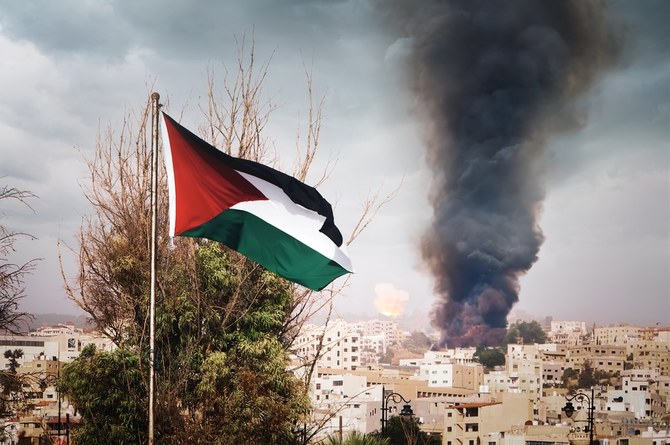
RIYADH: Nearly every Gazan is living in poverty as the Israel-Hamas war continues to have a “devastating impact” on the Palestinian economy, according to the World Bank.
An analysis by the organization sets out how the economic consequences of the conflict have spread beyond Gaza and into the West Bank, with widespread unemployment and underemployment combined with inflation causing a rapid decline in purchasing power for households in both areas.
Nearly half a million jobs across the territories have been lost since October 2023, and per capita gross domestic product declined by 12 percent in 2023.
Israel has bombarded the densely populated Gaza Strip following the Oct. 7 Hamas attack on Israeli communities. Israel says Hamas killed some 1,400 people including children, and took more than 200 hostages, some of them infants and older adults.
The fiscal situation of the Palestinian Authority has dramatically worsened, according to the World Bank, with a financing gap expected to reach $1.2 billion heightening the risk of disorderly adjustments and a potential imminent fiscal collapse.
In May 2023, the World Bank forecast the Palestinian economy to grow about 3 percent by the end of the year, after a 4 percent post-COVID-19 boost in 2022.
That analysis has been completely reversed by the conflict, with the organization now forecasting the Palestinian economy will contract anywhere between 6.5 percent and 9.4 percent during 2024.
“The northern governorates of Gaza are experiencing a full-blown famine, with food insecurity reaching catastrophic levels, particularly in the northern areas and extending southward,” said the World Bank’s latest report, adding: “At least one in four Gazan is experiencing catastrophic hunger, and 95 percent of the population is suffering from food insecurity.”
Most children in Gaza are at risk of “stunting” because of the famine, the analysis added.
Reflecting on the economic impact of the conflict, the report said the outlook of the Palestinian territories for the full year of 2024 “remains highly uncertain, depending on the severity and duration of the conflict, changes in Israeli policies in the West Bank, including those related to access to the Israeli labor market, and the outcome of the clearance revenue dispute.”
The Palestinian Authority is facing a significant decrease in clearance revenue transfers and shrinking domestic resource mobilization, coupled with a rigid current expenditure envelope, the World Bank said.
“The PA’s financing gap after aid for 2023 reached $682 million or 3.9 percent of GDP, and the situation is expected to worsen further in 2024, with a potential financing gap of up to $1.2 billion. A focus on fiscal policies, especially those improving spending efficiency, particularly regarding the unsustainable wage bill and enhancing tax mobilization, must remain a top priority in the reform agenda,” said the report.
The World Bank argued that the banking sector across the territories is “well regulated” by the Palestine Monetary Authority, which has “steadily been building the capabilities and resilience of local banks.”
The report added: “Presently, the banking system is well capitalized, liquid, and compliant with the Capital Adequacy Requirements set by the PMA. At the same time, institutional and economic difficulties are tilting the risks upward for the financial sector. Actively avoiding further instability is crucial to allow the financial sector to maintain its established function as a stable pillar during periods of economic challenges.”
Startup Wrap – regional startup activity flourishes
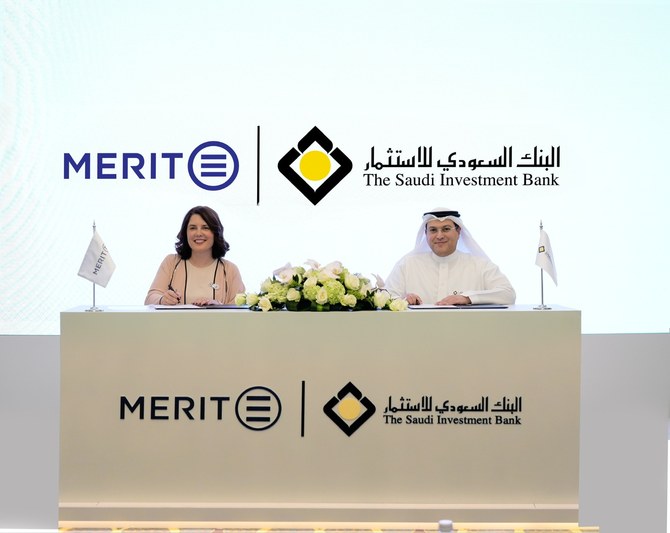
CAIRO: The startup ecosystem in the Middle East and North Africa region saw a flurry of activity as venture investments and acquisitions bloom.
Saudi Arabia-based Software-as-a-Service provider Merit has raised $12 million in its pre-series B funding round, led by Alistithmar Capital i-Cap and followed by existing series A investors Tech Invest Com and Hambro Perks Oryx Fund.
Founded in 2016 by Julie Barbier-Leblan and Thrishan Padayachi, Merit assists businesses in increasing customer and employee engagement via a suite of cloud-based SaaS platforms, enterprise solutions, applications, and software.
This new round will help Merit develop its technology to enhance customer engagement. In 2021, Merit raised $5 million in a series A round led by Saudi Arabia’s Impact46, along with Tech Invest Com, Arzan VC, Hambro Perks Oryx, and several regional angel investors.
Riyad Capital launches 1957 Ventures to support digital transformation
Riyad Capital, backed by Riyad Bank, has launched the 1957 Ventures investment fund to drive transformative growth in Saudi Arabia’s fintech sector.
The fund aims to accelerate the Kingdom’s digital transformation by creating opportunities for innovative fintech business models.
Abdullah Alshwer, CEO of Riyad Capital, stated, “The 1957 Ventures Fund embodies a forward-thinking financial vision aligned with the Kingdom’s ambitious digital transformation goals; this fund signifies a strategic investment in the future of Saudi fintech.”
“Our institutional approach will unlock new levels of innovation, driving both sector growth and sustainable economic impact,” he added.
Saudi logistics startup MDD closes $1.3m series A round
Saudi Arabia-based logistics startup MDD has closed its series A round with $1.3 million in funding for a 5 percent stake with a valuation of $26 million.
Founded in 2019, MDD provides supply chain solutions for businesses.
Saudi startup Sorbet’s raises funding round from web3 VC Adverse
Saudi web3 startup Sorbet raised an investment round from the Kingdom’s recently announced venture capital firm Adverse.
Founded by Rami Djebari and Maher Ayari, Sorbet aims to simplify business processes for freelancers by cutting fees and intermediaries.
“Receiving support from an experienced partner like Adverse will accelerate our development and enhance our market strategy. This collaboration is a milestone in breaking down financial barriers and enabling limitless growth opportunities for professionals in the region,” Djebari said.
Egyptian fintech e-Finance acquires stakes in Al Ahly Momken and EasyCash
Egypt-based fintech e-Finance for Digital and Financial Investments has acquired a 25 percent stake in Al Ahly Momken and a 13 percent stake in EasyCash for Digital Payments for an undisclosed deal value.
Founded in 2005, e-Finance is involved in the development of digital payment infrastructure and digital space to help achieve social development goals.
Al Ahly Momken, based in Egypt, is a digital payment provider, serving over 90,000 merchants and more than 5 million customers.
Meanwhile, EasyCash, also based in the north African country, provides payment services for individuals, merchants, and businesses.
These acquisitions align with e-finance’s strategy to expand its footprint in the digital payments market and support Egypt’s Vision 2030 for digital transformation.
Egypt’s OneOrder closes $16m series A round
Egypt-based logistics startup OneOrder has raised $16 million in a series A round in a mix of equity and debt, led by Delivery Hero Ventures, with participation from Norrsken22 and existing investors, Nclude and A15.
Founded in 2022 by Tamer Amer and Karim Maurice, OneOrder is a tech-enabled supplier and wholesale distributor that offers the food and beverages industry a supply of quality goods with embedded financing.
The company plans to expand into the Gulf Cooperation Council region by the fourth quarter of 2024. In December 2022, OneOrder closed a seed round at $3 million.
Jordan’s fintech liwwa takes $5m loan
Jordan-based fintech liwwa has secured a $5 million loan from the US International Development Finance Corp..
Founded in 2013 by Ahmed Moor and Samer Atiani, liwwa is a peer-to-peer lending network that connects investors and small businesses through smart business loans.
The latest cash influx will enable liwwa to finance further small and medium sized enterprises across various sectors. Liwwa’s last funding round was in 2022, when it raised $18.5 million in a pre-series B round of equity and debt.
Egyptian investment bank EFG Hermes acquires stake in Danish wealth management firm
Egypt’s investment bank, EFG Hermes, a subsidiary of EFG Holding, has acquired a minority stake in the Danish digital wealth manager Kenzi Wealth for an unknown value.
The new partnership will enhance EFG Hermes’ digitalization vision. By combining EFG Hermes’ client network and Kenzi Wealth’s AI tools, EFG Hermes will be able to offer its clients a more efficient and personalized investment experience.
Founded in 2021 by Mohamed El-Masri, Kenzi Wealth specializes in tailoring investment features to meet the needs of investors.
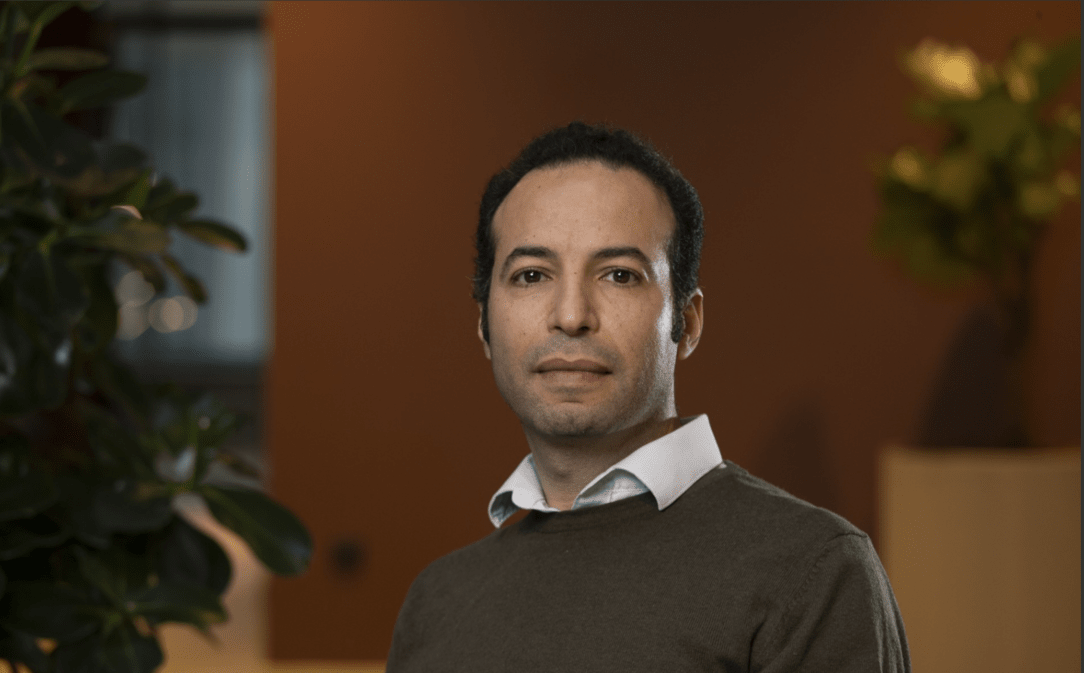
UAE’s Plain Tiger raises funding round
UAE-based business-to-business marketplace Plain Tiger has raised an investment from UAE’s venture capital firm AngelSpark for an undisclosed amount.
Founded in 2021 by Alexandra Polson and Oliver Baillie, Plain Tiger connects hotels with eco-friendly suppliers, saving them time, money, and reducing their environmental impact.
The investment is part of Plain Tiger’s $1.5 million seed round, which will be used to expand into Saudi Arabia and accelerate more hotels’ pathway to net zero procurement.
UAE’s Revent closes $900k in pre-seed round
UAE-based electronics marketplace Revent has raised $900,000 in a pre-seed round, provided by Techstars and a group of angel investors.
Founded in 2022 by Baldeep Singh and Dhananjay Choubey, Revent offers SMEs pre-owned devices on monthly subscriptions across the UAE and Saudi Arabia.
The funds will be used to build a self-service platform for businesses, along with growing Revent’s client base in Saudi Arabia.
UAE’s proptech Keyper closes $4m equity round
UAE-based proptech Keyper has raised $4 million in equity in a pre-series A round, led by BECO Capital and Middle East Venture Partners, with participation from existing investors Vivium Holding, Jabbar Group, Signature Developers, and new investors Annex Investments, Pin Investment, and Al Qahtani Investment, among other angels.
The company has also received an additional $30 million in Shariah-compliant sukuk financing from global asset manager Franklin Templeton Investments Ltd., bringing its cumulative capital raised to-date to over $40 million.
Founded by Omar Abu Innab and Walid Shihabi in 2022, Keyper offers a property management platform where tenants can track their expenses and charge online, and investors get real estate portfolios and access to data-driven insights.
Keyper will invest the fresh funds into digitizing the rental experience in the UAE and scaling its innovative rent now, pay later solution. Last October, Keyper raised a $6.5 million seed round.
UAE’s proptech Huspy raises investment round
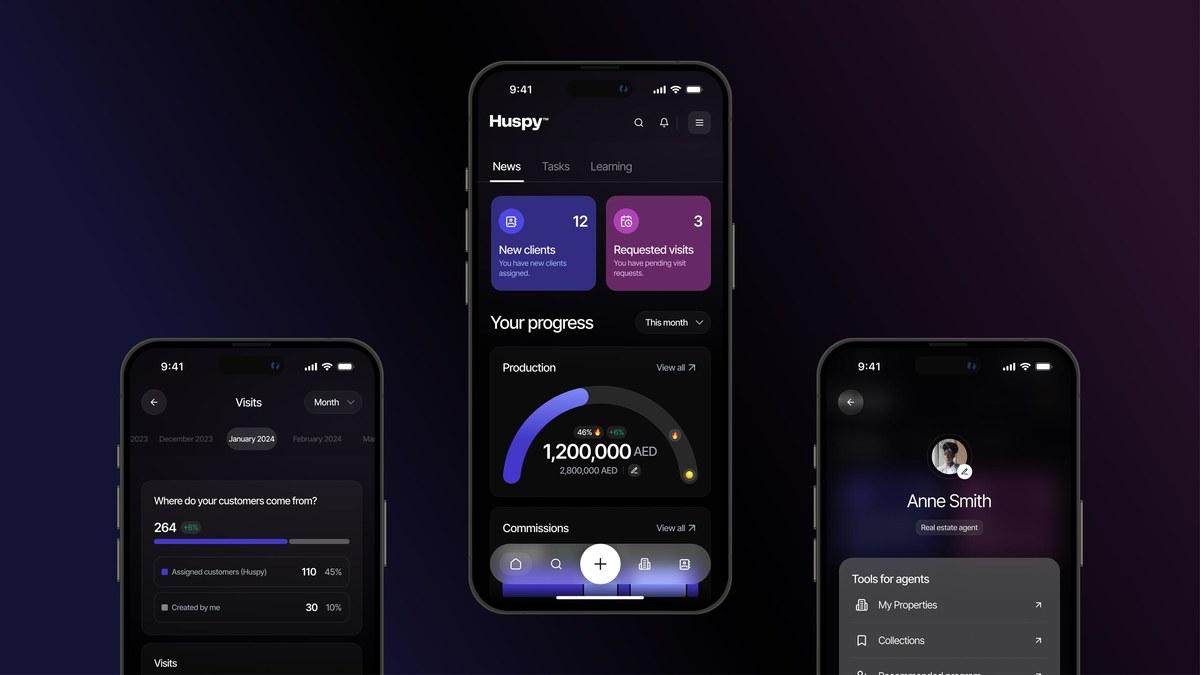
UAE-based property technology firm Huspy has raised a fresh investment round led by Balderton Capital, with further participation from existing investor Fifth Wall, amongst other investors.
Founded in 2020 by Jad Antoun and Khalid Ashmawy, Huspy facilitates the home buying and financing process through its online marketplace.
The company claims that this round of funding is at a higher valuation than the $37 million series A raised in 2022. The newly acquired capital will be deployed to build a super app for real estate.
Egypt’s proptech Birdnest raises pre-series A round
Egypt-based proptech Birdnest has closed an undisclosed pre-series A funding round for a 20 percent stake in the company, led by Beltone Venture Capital and CI Venture Capital.
Founded in 2020 by Mostafa El-Nahawy and Ahmed Fadda, Birdnest offers furnishing services and rental management solutions to ensure maximum returns for real estate investors and value for tenants.
The funds are earmarked for the expansion of the regional quality team, the enhancement of proprietary technologies, and marketing initiatives to reinforce Birdnest’s market position.
Oil Updates – crude steady as investors weigh US rate fears, firmer seasonal demand
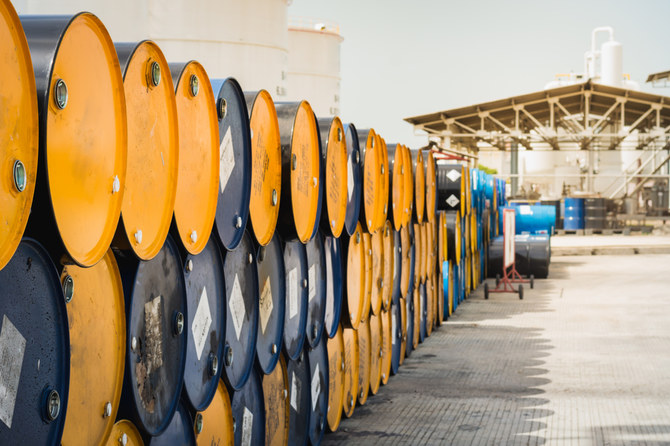
SINGAPORE: Oil prices were stable on Friday as investors considered the latest comments from the US Federal Reserve on interest rates amid sticky inflation, while signs of firming seasonal US fuel demand lent support, according to Reuters.
Brent crude futures rose 2 cents at $81.38 a barrel at 6:15 a.m. Saudi time, while US West Texas Intermediate crude futures were down 1 cent at $76.86.
Both benchmarks settled at multi-month lows on Thursday, with Brent crude futures closing at their weakest point since January and US crude futures hitting a three-month low.
Brent futures were headed for weekly declines of more than 3 percent, while WTI futures were poised for a slide of nearly 4 percent from last week as ongoing macroeconomic constraints in the US held prices in the balance.
“The sore demand sentiment owing to the hawkish Fed outlook at rates and the backdrop of ‘possibly higher-for-longer rates’ weighed significantly on oil prices this week,” said Priyanka Sachdeva, a senior market analyst at Phillip Nova.
Minutes released on Wednesday from the Fed’s latest policy meeting showed policymakers questioning whether current interest rates are high enough to tame stubborn inflation.
Some officials said they would be willing to hike borrowing costs again if inflation surged. However, Fed Chair Jerome Powell and other policymakers have since said they feel further rate hikes are unlikely.
Higher rates could slow economic growth and crimp fuel demand.
Meanwhile, strengthening US gasoline demand was helping to stabilize prices ahead of the Memorial Day holiday weekend, which is considered the start of the US summer driving season.
Gasoline demand in the US reached its highest level since November, the Energy Information Administration said on Wednesday. That helped support the market as US drivers account for around a tenth of global oil demand, “making the upcoming driving season a pillar of the recovery in global demand growth,” ANZ analysts said in a note.
All eyes are now on the Organization of the Petroleum Exporting Countries and allies, together called OPEC+, set to meet on June 1, where they are expected to discuss whether to extend voluntary oil output cuts of 2.2 million barrels per day.
“The market is also tentative about taking an aggressive positioning ahead of next week’s OPEC meeting, where supply policy will be discussed,” ANZ analysts added.
Oil creeps back up after three days of losses
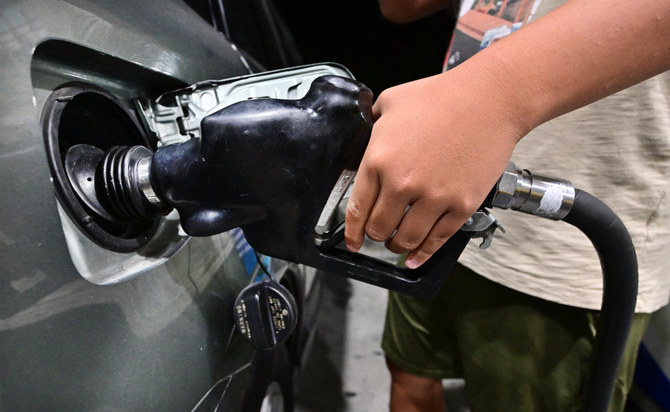
Oil prices crept up on Thursday, clawing back some of the previous three days’ losses.
The gains were made despite the US Federal Reserve entertaining a further tightening of interest rates if inflation remains sticky, a move that could hurt oil demand.
Brent crude futures were up 92 cents, or 1.1 percent, at $82.82 a barrel by 1317 GMT. US West Texas Intermediate crude futures were 97 cents, or 1.3 percent, higher at $78.54. Both benchmarks fell more than 1 percent on Wednesday for their third straight day of losses.
Saudi crude exports
Saudi Arabia’s crude exports reached 6.41 million barrels per day in March, according to an analysis from the Joint Organizations Data Initiative.
This figure increased by 96,000 bpd, or 1.52 percent, compared to the previous month, marking a nine-month high. Furthermore, the data indicated that the Kingdom’s crude production fell to 8.97 million bpd, reflecting a monthly decrease of 0.42 percent.
This can be linked to the voluntary oil production cuts adopted by members of the Organization of the Petroleum Exporting Countries and their allies, known as OPEC+. Saudi Arabia announced in March the extension of its 1 million bpd cut, initially implemented in July 2023, until the end of the second quarter of 2024.
The Ministry of Energy said that the Kingdom’s production will be approximately 9 million bpd until the end of June.
Meanwhile, refinery crude output, representing the processed volume of crude oil yielding gasoline, diesel, jet fuel, and heating oil, fell by 4 percent compared to the previous month, reaching 2.56 million bpd, according to JODI data.




